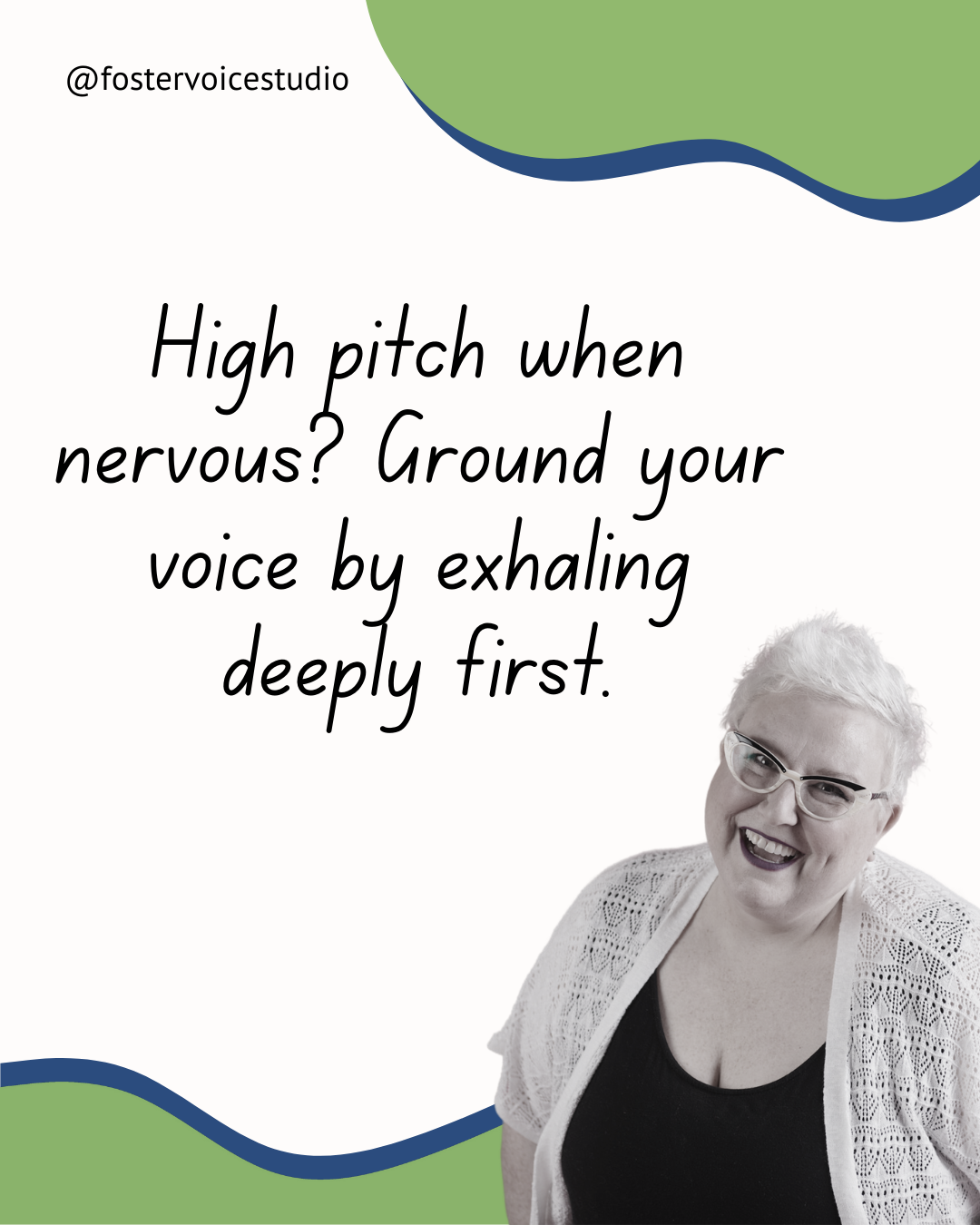When Your Voice Betrays You: How to Ground Your Sound Under Pressure
We’ve all been there.
You’re in the middle of making an important point—maybe in front of a jury, maybe in a heated conversation at home. You want presence. You want authority. You want your words to land with weight.
And then… your voice betrays you.
Instead of gravitas, your pitch keeps climbing until you sound less like a trusted guide and more like Mickey or Minnie Mouse.
Why does this happen—and more importantly, how do you stop it?
Why Your Pitch Climbs Under Stress
This isn’t about your voice not “caring.” It’s about your nervous system taking over.
When you’re stressed or emotionally charged, your body shifts into a mild fight-or-flight response:
-
Muscles around the larynx tighten.
-
Breathing becomes shallow.
-
Pitch naturally rises.
You often don’t notice until it’s too late—and the credibility of your message suffers.
The Fix: Ground Your Voice
Grounding your voice means anchoring your sound. It’s about creating stability in your body, breath, and imagination so your voice doesn’t spiral upward with your nerves.
Think of it like roots: steady, deep, reliable.
Step One: Ground the Body
-
Stand tall but not stiff.
-
Imagine your feet sinking into the floor while your head reaches upward.
-
Unlock your knees. Relax your shoulders.
This posture communicates authority before you even speak—and it tells your nervous system: “We’re safe. We’re steady.”
Step Two: Ground the Breath
Stress triggers high chest breathing. That’s shallow, limited, and it ramps up fight-or-flight.
Instead:
-
Initiate your inhale low, expanding through the belly and diaphragm.
-
Keep the chest relatively quiet.
-
Let your exhale release slowly.
This kind of breathing stimulates your parasympathetic nervous system—your body’s “rest-and-digest” mode. Translation: calm.
And here’s the key—don’t just inhale and grip it. Let the air move. Hold your hand in front of your mouth and feel the breath on your palm as you speak. That’s airflow supporting your sound.
Step Three: Hook the Voice to the Breath
This is where grounding comes alive.
-
Let your sound ride on the air, not fight against it.
-
At first, exaggerate with slightly breathy speech to build awareness.
-
Over time, your voice will naturally connect to the flow of breath.
The payoff? A voice that’s fuller, steadier, and more controlled—without losing passion or urgency.
Why It Matters in Court
Jurors aren’t just hearing your words. They’re registering the sound of your voice as data about whether to trust you.
-
High, tight pitch = signals anxiety.
-
Grounded voice = signals confidence and authority.
And neuroscience backs this up. When you breathe low and steady, you don’t just calm yourself—you calm others. Mirror neurons and physiological mirroring mean jurors unconsciously sync with your rhythm. If you’re grounded, they become grounded too.
That’s when they’re most able to listen, process, and decide.
Practice Grounding Before You Need It
Like any skill, grounding is only reliable if you practice. Build it into low-stakes moments so it’s available in high-stakes ones.
Try this:
-
Before a call or meeting, spend 60 seconds grounding posture and breath.
-
In casual conversation, notice when your pitch climbs—pause, reset, breathe low.
-
Read aloud daily, practicing airflow and grounded sound across your whole range (chest, middle, and head voice).
The more you practice, the more automatic it becomes.
Closing Takeaway
The next time you feel your voice creeping upward—pause.
Ground your body.
Ground your breath.
Hook your voice into that foundation.
That’s how you project gravitas. That’s how you stay in control. And that’s how your jury—or anyone else—hears not just your words, but the steady, confident presence behind them.
👉 Your turn: Do you notice your pitch climbing when you get stressed? What’s one grounding strategy you want to try this week?
LET'S STAY CONNECTED
You’re already speaking. Let’s make it count.
Get one smart, time-saving vocal tip each Tuesday to help jurors learn faster, retain more, and stay connected — so your message lands the first time.
You're safe with me. I'll never spam you or sell your contact info.


